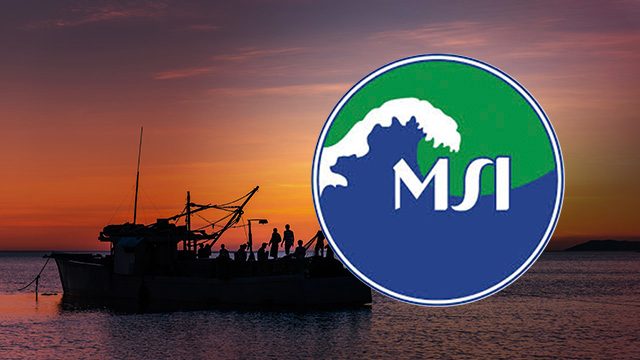SUMMARY
This is AI generated summarization, which may have errors. For context, always refer to the full article.

MANILA, Philippines– The country’s top center for marine sciences on Tuesday, July 2, urged the Philippine government to safeguard the exclusive rights of Filipinos to the West Philippine Sea (South China Sea). (READ: Sovereignty vs sovereign rights: What do we have in West PH Sea?)
Citing the economic, ecological, and food security of current and future Filipino generations, the University of the Philippines Marine Science Institute (UP MSI) urged the protection of the West Philippine Sea by ensuring the enforcement of the Filipinos’ exclusive access to the area.
“Allowing foreign entities to occupy and exploit these waters would be tantamount to denying Filipino fisherfolks access to their own food and resources,” the UP MSI said in a statement. (READ: Duterte says he can’t ban Chinese from fishing in PH waters)
The UP MSI scientists stressed the importance of the West Philippine Sea, which comprises 40% of the country’s Exclusive Economic Zone (EEZ), to the nation’s food security in the face of a sharp decline in the Philippine fisheries industry.
“Our exclusive economic rights also come with equal responsibility to protect, manage, and sustainably use the resources in our WPS EEZ – a responsibility enshrined in our constitution and national laws,” it said.
Citing reports of Chinese fishing vessels harvesting endangered giant clams and corals in the area, the UP MSI said such activities wreak havoc on the marine environment, and ultimately affect the food supply of many Filipinos. (READ: [ANALYSIS] Your fish is your future)
“Harvesting of clams and corals, dead or alive, results in significant physical damages and ultimate demise of the habitats from where they were taken. These are the same habitats that serve as home and breeding grounds of most marine life, and source of food of many Filipinos,” said the scientists.
UP MSI noted how the West Philippine Sea is not only rich in corals and giant clams but also seaweed, seagrass, marine animals, and microorganisms. These have the potential to become sources of new drugs, medicines, and other biotechnological products.
“Losing these habitats and ecosystems would mean losing many resources that could benefit future generations of Filipinos,” they added.
Warning against an ecological disaster if the West Philippine Sea is not immediately protected, the UP MSI called on all parties to desist from engaging in any more activities that would damage the area’s ecosystem, and demanded the strict enforcement of all environmental laws already in place.
Recognizing the sensitivity of the issue, the UP MSI scientists also urged the governments of the Philippines, China, and members of the Association of Southeast Asian Nations (ASEAN) to discuss the possible establishment of multilateral marine protected areas that hinge on the recognition of the West Philippine Sea as a shared heritage for the people of the region.
They also suggested the creation of a separate Department of Fisheries and Oceans mandated to study, utilize, manage, and protect the Philippines’ oceans and seas, as well as investments in science and technology to help equip and empower local scientists.
UP MSI scientists also said that everyone – including the national government and other academic and research institutions – has a role to play in protecting the West Philippine Sea. They said that even ordinary citizens can help educate people, improve the level of discourse with scientific facts and data, and stop misinformation and disinformation.
“We call on the public to become more aware and be part of a movement for responsible stewardship not only for WPS but all the seas surrounding the country, and we hope that such involvement would not stop in share, likes and comments in social media,” it said. – Rappler.com
Nicolas Czar Antonio is a Rappler intern and a Psychology student at the University of the Philippines Diliman. He tweets at @Nicolas_Czar.
Add a comment
How does this make you feel?
There are no comments yet. Add your comment to start the conversation.